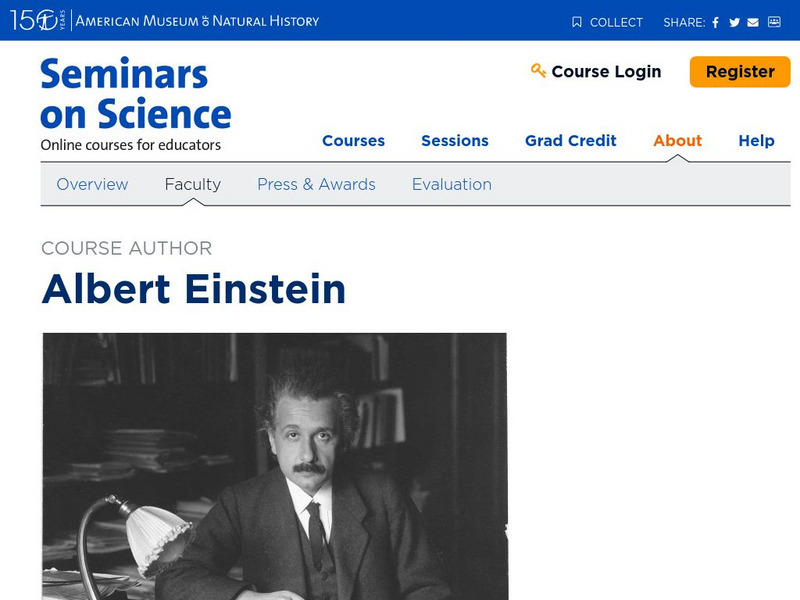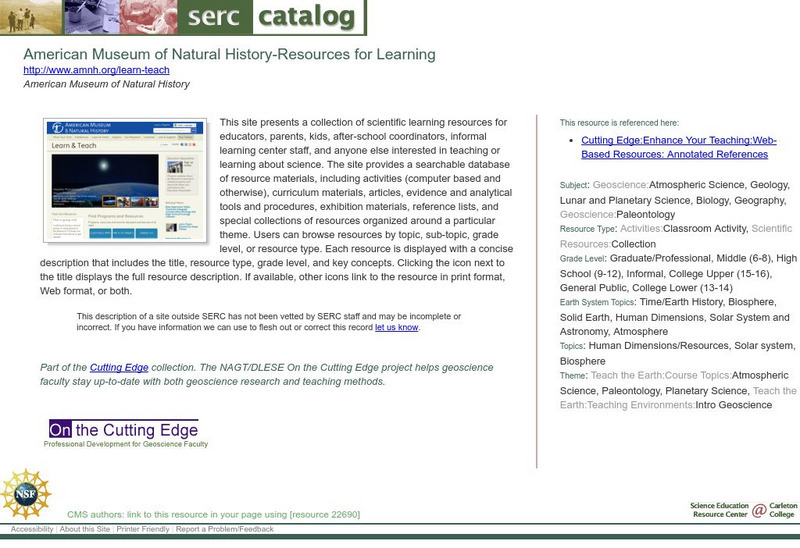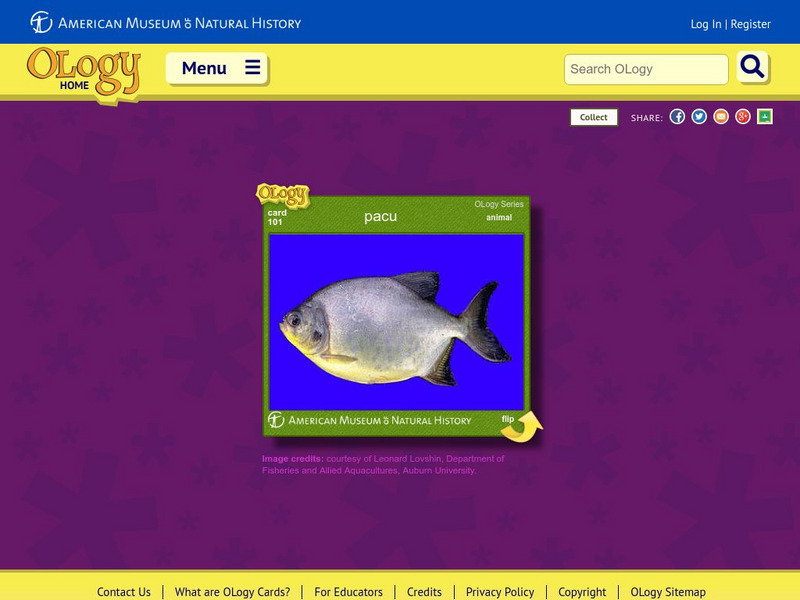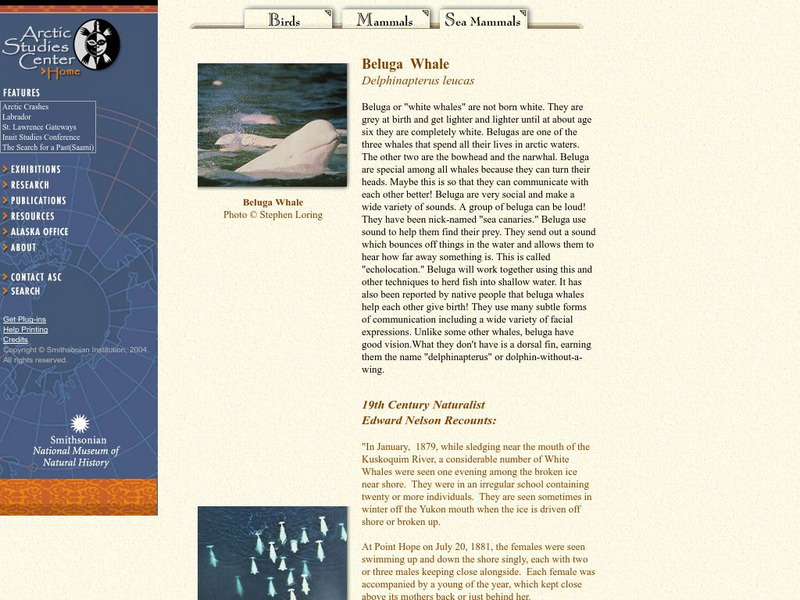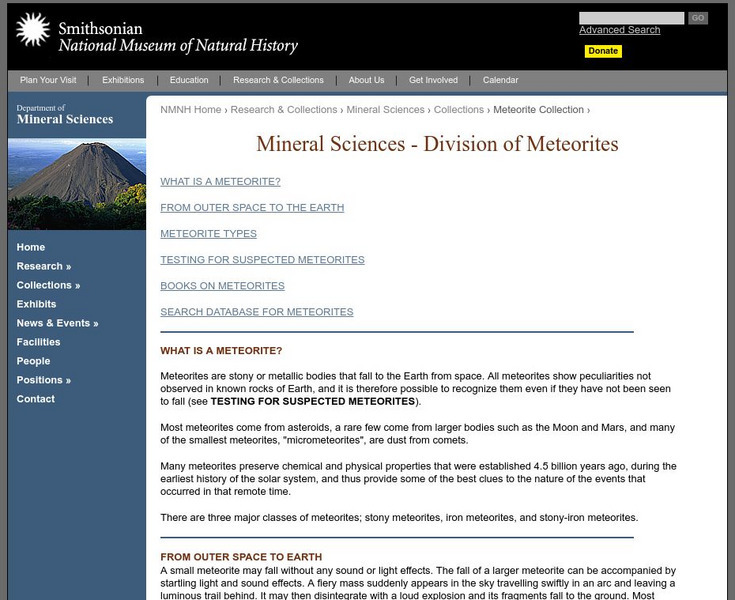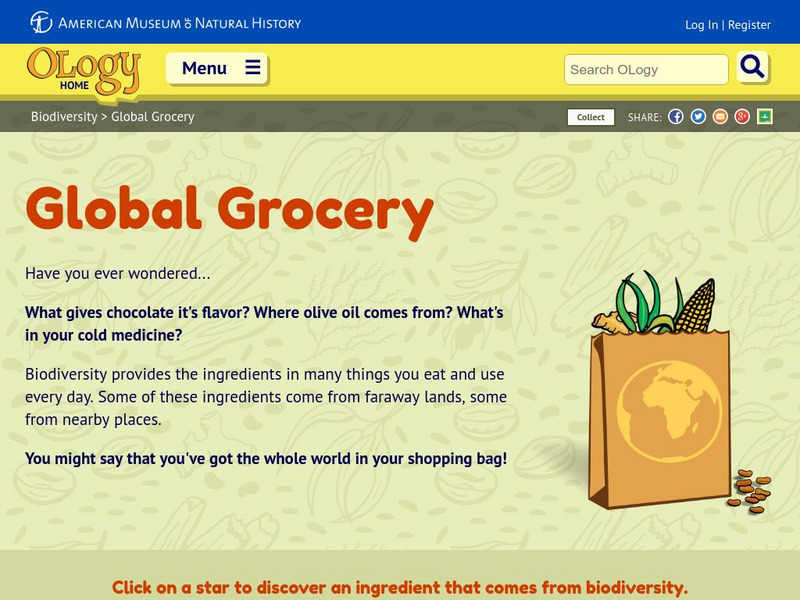Hi, what do you want to do?
American Museum of Natural History
American Museum of Natural History: Profile: Albert Einstein
Read about the life and work of Albert Einstein, including details from his childhood and what he said about life just before he died.
American Museum of Natural History
American Museum of Natural History: O Logy: Stuff to Do: Moon Watch Flip Book
Hands-on activity shows you how to make a flip book of the moon using close observation skills and simple materials. Includes animation that lets you view the moon in action through its different phases, worksheets, and illustrated...
Science Education Resource Center at Carleton College
Serc: American Museum of Natural History Resources for Learning
This site presents a collection of scientific learning resources for educators, parents, kids, after-school coordinators, informal learning center staff, and anyone else interested in teaching or learning about science. The site provides...
American Museum of Natural History
American Museum of Natural History: O Logy: Stuff to Do: Stargazing
Get started on the road to becoming an expert stargazer by following these recommendations for identifying stars, planets, and constellations. Includes an example of a journal that can be used as a record of your investigations.
American Museum of Natural History
American Museum of Natural History: O Logy: Stuff to Do: Atomic Mobile
Illustrated instructions for how to make a model of an atom (an atom mobile).
Smithsonian Institution
National Museum of Natural History: Hall of Mammals: Giant Anteater
Brief illustrated overview of the giant anteater and an accompanying video demonstrate how this "food specialist lives up to his name".
American Museum of Natural History
American Museum of Natural History: Profile: Georges Lemaitre
Find out about the life and work of the father of the Big Bang theory, Georges Lemaitre. This article describes the origin of the cosmology theory and its growing acceptance among scientists. This is an excerpt from COSMIC HORIZONS:...
American Museum of Natural History
American Museum of Natural History: Pacu O Logy Card
Flip this interactive OLogy card to find questions and answers, fast facts, and other bite-size pieces of information to help you understand important characteristics of the South American pacu, a freshwater fish.
American Museum of Natural History
American Museum of Natural History: Brown Pelican O Logy Card
Flip this interactive OLogy card to find a definition, fast facts, questions and answers, and other bite-size pieces of information about the characteristics of the brown pelican.
American Museum of Natural History
American Museum of Natural History: Breed O Logy Card
Flip this interactive OLogy card to find questions and answers, fast facts, and other bite-size pieces of information to help you understand the breeding process of plants and animals. Also learn about teosinte, a grass that Native...
American Museum of Natural History
American Museum of Natural History: Taiwan O Logy Card
Flip this interactive card to start learning about the island of Taiwan. Answer multiple-choice and fact-or-fiction questions and review some fast facts about this small country that is sometimes called Formosa.
American Museum of Natural History
American Museum of Natural History: Kryptobaatar O Logy Card
Flip this interactive OLogy card to find questions and answers, fast facts, and other bite-size pieces of information to help you understand important characteristics of the Kryptobaatar, a prehistoric mammal.
American Museum of Natural History
American Museum of Natural History: O Logy: Archaeology: Clues From the Past
This resource is a place for learning all about archaeology - archaeological fieldwork, field journals, tools of the trade, and interesting archaeological sites and discoveries. Explore, ask questions, find information, and meet...
University of Oxford (UK)
Oxford University Museum of Natural History: The Learning Zone: Fossils
This excellent website walks students through the basics of understanding fossils. It emphasizes that most common fossils would be invertebrates and, after learning more about these life forms, students can choose to take a quiz. The...
University of Florida
Florida Museum of Natural History: Fish Adaptations
This site has pictures that illustrate the many ways fish have adapted to make the most of life in their environments. The explanations are short and easy to understand.
University of Florida
Florida Museum of Natural History: How to Avoid Shark Attacks
All you ever want to know to avoid being attacked by a shark. Full of lots of good safety tips and information.
Smithsonian Institution
National Museum of Natural History: Beluga Whale
This site provides a general overview of the Beluga Whale, complete with the personal observations of 19th Century Naturalist, Edward Nelson.
American Museum of Natural History
American Museum of Natural History: O Logy: Beautiful Breeds: Belgian Draft
Description and detailed illustrations of the Belgian draft, a large workhorse capable of puling heavy loads. Choose Belgian Draft from the list on the right.
Smithsonian Institution
National Museum of Natural History: Old Goats in Transition
Read about pre-historic animal domestication, something that that has been studied rigorously by scientists, but not yet fully understood. The bottom half of this article focuses on goat domestication as it was practiced in southwestern...
American Museum of Natural History
American Museum of Natural History: O Logy: How Did the Universe Begin?
Bite-size introduction to two scientists-Hubble and Lemaitre-who played key roles in formulating the theory of the origin of the universe known as the big bang. Includes an interactive timeline on which you can plot out the approximate...
Smithsonian Institution
National Museum of Natural History: Mineral Science: Division of Meteorites
A review of meteorites, what they are, what types there are, and a collection of reading resources to understand more about these objects falling from the sky.
American Museum of Natural History
American Museum of Natural History: Resources for Learning: Bolivia Biodiversity
An overview, in a captioned gallery of images, of the plant and animal life of Bolivia as well as some of the cultural traditions and practices among Bolivian people.
American Museum of Natural History
American Museum of Natural History: Broad Tailed Swallowtail O Logy Card
Flip this interactive OLogy card to find questions and answers, fast facts, and other bite-size pieces of information to help you understand important characteristics of the Broad-tailed Swallowtail, the national butterfly of Taiwan.
American Museum of Natural History
American Museum of Natural History: O Logy: Global Grocery
Did you ever wonder where tapioca pudding comes from? Did you know that cacao beans were once used as money? Learn about the human uses of plants (to make common foods and medicines) at the Global Grocery.





